In 2018, I was a first-year graduate student in awe that the university paid me to fly elsewhere to present research at a conference. This was my first time presenting research, and I was eager to share with the audience that, after reading several studies on predicting which students are at risk of failing a chemistry course, I developed a means to examine how these students performed relative to their peers on each topic covered throughout the curriculum.
This information could help educators (myself included) become more aware of the topics on which their students may inequitably struggle and allow us to develop resources to support those students specifically.
I concluded my talk and asked for questions. The first person I chose asked, "When did we lose the power to control who would or would not succeed as scientists?" While the talk was generally well received, this question reflected the perspective of someone who seemed against changing how we teach and assess to ensure students predicted to fail the course have access to resources designed to support their success. I never entirely understood why until a few weeks ago, when I learned that understanding is frame-dependent.
Have you lived a similar experience?
Last time, we discussed how empathy can hurt reform:
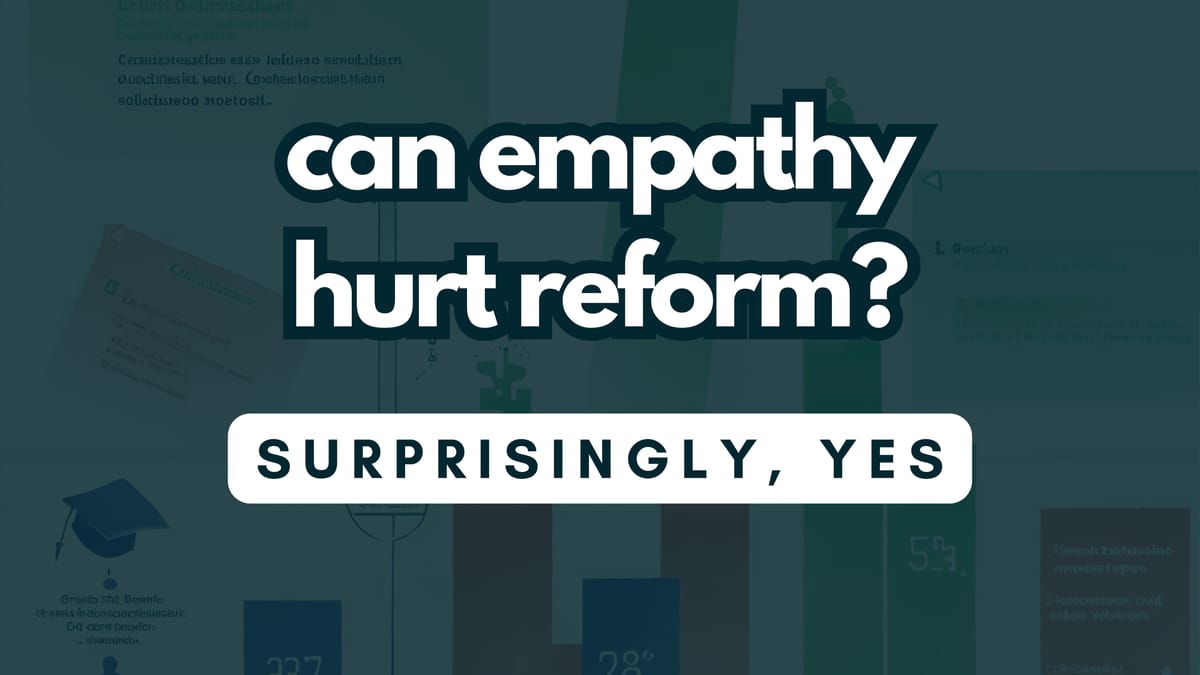
This time, we’ll use the same study to explore data measuring the effects of different approaches to framing.
Participants were randomly assigned to read one of four value-framing statements about addiction policies in Alberta, Canada.
- Empathy: the idea that we need to identify with those suffering from addiction and treat them with compassion.
- Interdependence: the idea that everyone in the province has a stake in addressing addiction.
- Ingenuity: the idea that the best way to address addiction issues is through innovative solutions.
- Prevention: the idea that we must take steps to deal with addiction issues before they arise.
Then, they responded to questions measuring their support for different approaches to addiction policy reform (in italics below). A scale was created (where higher scores indicate greater alignment with expert recommendations), and a line was fitted using multiple linear regression.
To simplify, only significant changes in support are reported below as percentage points increase or decrease policy support.
Below are the results. They’re listed as value-framing statement type (header), statements participants were asked to read (in the yellow block quote), and policy support impacts (the list of percentages below the quote).
Empathy
Alberta Needs Empathy in its Addiction Policy:
As Albertans, we need to accept the worth of all human beings and treat each other with care and compassion. When we have empathy toward those wrestling with serious problems, we ensure that we have a province where people appreciate and care for each other. One way to do this is to develop programs and policies that treat individuals with respect and compassion. Simply put, Alberta would be better off if we used our resources to care for our fellow human beings who are suffering from addiction. Realizing that we need greater empathy will allow us to deal effectively with our problems.
- -2.1% in Disparities: less support for providing internet and phone access to those experiencing addiction.
- -0.4% in Definitional/Causational: less agreement that addiction is a systemic issue rather than a personal failing.
- No positive effects were detected.
These findings were the focus last time; let’s consider where the data showed positive effects.
Interdependence
Everyone Has a Stake in Addressing Alberta’s Addiction Issues:
As Albertans, we must recognize that we are all connected, and what affects one part of our province affects us all. When we address everyone’s well-being, our whole province benefits. One way to do this is to set up policies and programs that make sure all parts of our population are vital and supported. Simply put, Alberta would be better off if its citizens worked as one to address addiction in our province. Realizing that we are interdependent is the key to moving forward and will allow us to deal effectively with our problems.
- +2.5% in Professional Training: more support for professional addiction training.
- +1.9% in Definitional/Causational: more agreement that addiction is a systemic issue rather than a personal failing.
- +1.6% in Treatment Support: more support for long-term interventions and care.
Ingenuity
Innovation Is the Best Way to Address Alberta’s Addiction Issues
As Albertans, we need to develop innovative solutions to tackle our problems. When we innovate, and we do not limit ourselves to current approaches, we can solve difficult problems. One way to do this is to develop and test new policies and programs as solutions to old and enduring problems. Simply put, Alberta would be better off if we focused on seeking out new ideas to deal with addiction issues. Realizing that ingenuity is the key to moving forward will allow us to deal effectively with our problems.
- +2.4% in Youth: more support for prevention and early intervention.
- +2.5% in Professional Training.
Prevention
Preventing Problems Is the Best Way to Address Alberta’s Addiction Issues:
As Albertans, we need to focus on preventing problems before they occur. When we postpone dealing with problems, they become worse and require more resources to fix. One way to get ahead of problems is to set up policies and programs that allocate resources now instead of putting things off and waiting until later. Simply put, Alberta would be better off if we took steps today to prevent and treat addictions. Realizing that we need to prevent problems before they occur is the key to moving forward and will allow us to deal effectively with our problems.
- +2.2% in Professional Training.
- +1.8% in Comorbidity: more agreement that addiction is connected to other issues (e.g., access to mental health services).
In summary, Prevention, Interdependence, and Ingenuity increased support for seeing addiction as a societal issue requiring systemic solutions across various policy areas. In contrast, Empathy reinforced unproductive individualistic assumptions, reducing support for reforms.
So... Why would framing a message for social change around empathy reduce support for policy changes?
In short, the audience's cultural values resulted in a mismatch between the issue and what needs to change, making the message unsuccessful in promoting support.
Next time, we will break the different statements down into components and identify patterns for what positively impacts policy support:
“Framing a message: How can a message be framed to optimize support for systemic reform?”
📍The Latest
🎙️ Podcast Episode of Drs. Corrales and Rosa discussing framing:

📄 New Journal Article - “Examining the implementation and outcomes of flipped pedagogy in science education: A review” by Athavan Alias Anand Selvam, Ph.D.
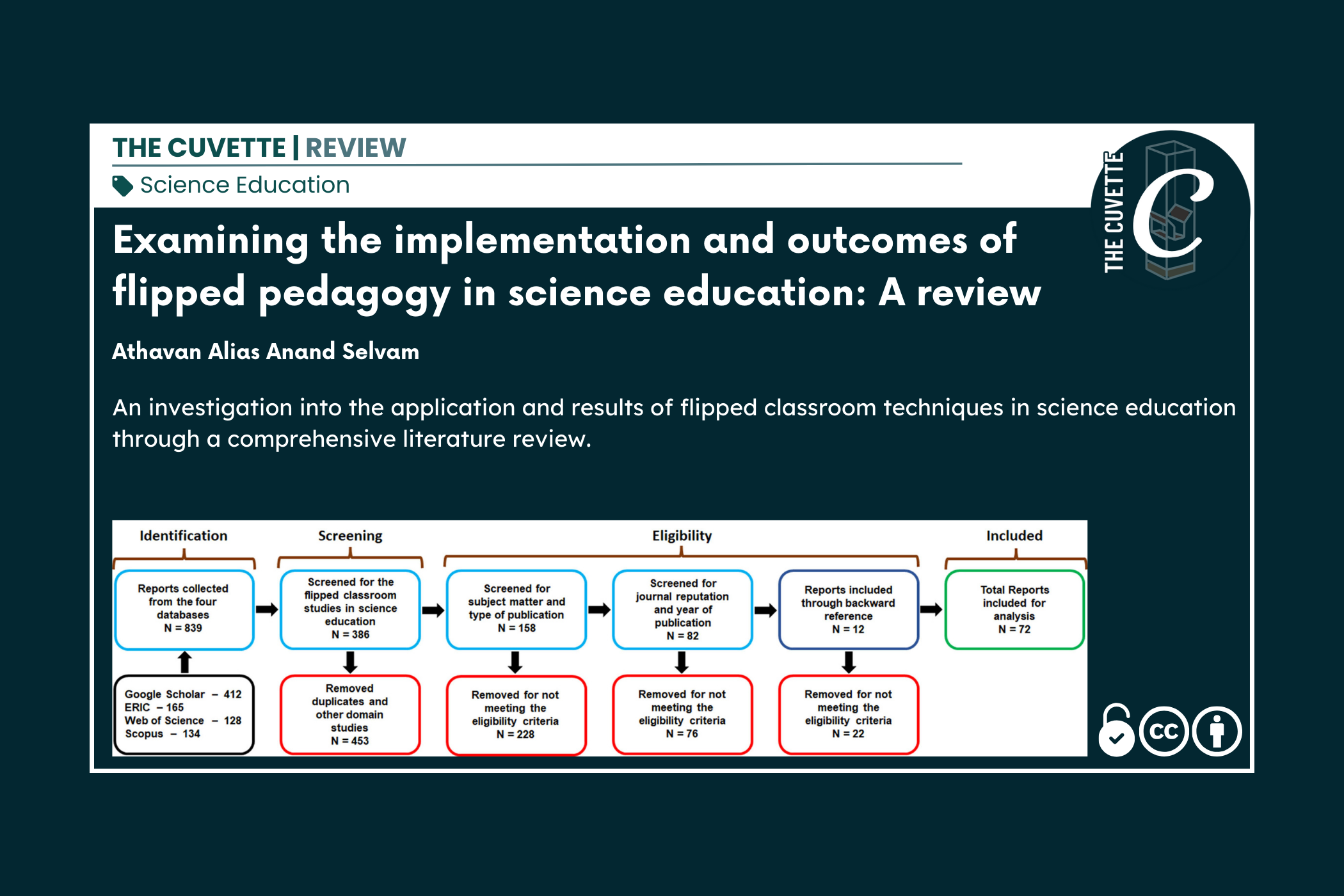
📚 Article Synopsis of theoretical and methodological advancements to intersectionality research in the psychological sciences:
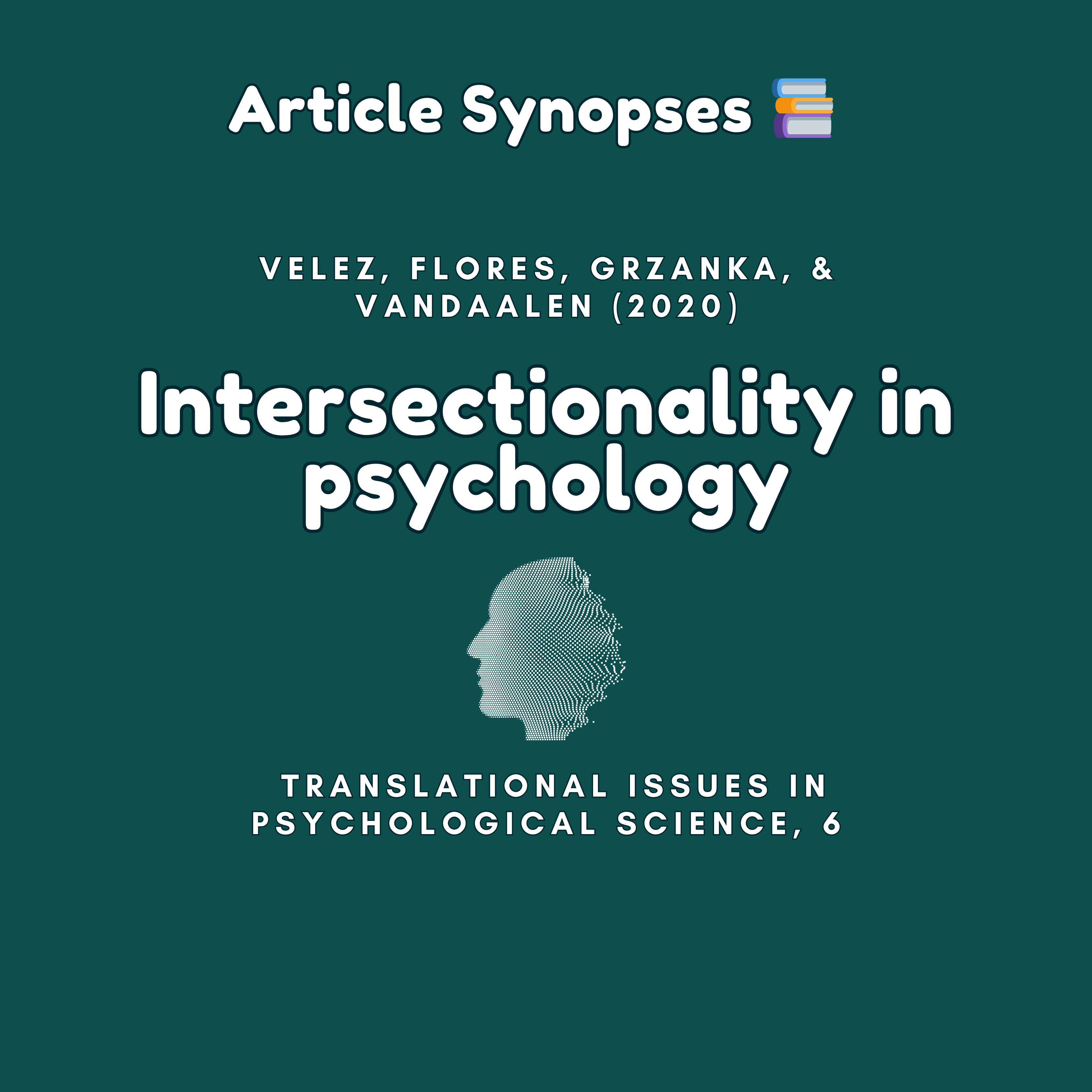
Next: Can you imagine an education system without a research-practice gap? 🤔
Explore unconventional solutions, such as practice-based evidence, embedded researchers, and continuous feedback loops, that could transform education into an integrated, responsive, and constantly improving system.
Click to Access ➡️About Cuvette Collective:
Cuvette Collective represents a community of educators and scientists dedicated to empowering the societal impact of STEM research.
We provide tailored tools, strategies, and insights to help scientists craft authentic, impactful broader impact plans that align with NSF priorities and their research focus.
Our engaging blog posts, interactive resources, and personalized consulting services support researchers in leveraging their scientific expertise to make a meaningful difference in society.
How to get involved:
1️⃣ Subscribe to our blog for the latest tips and insights.
2️⃣ Apply to participate in the Broader Impacts Excellence Program.
3️⃣ Reach out and let us know how we can help to enhance your broader impacts efforts.




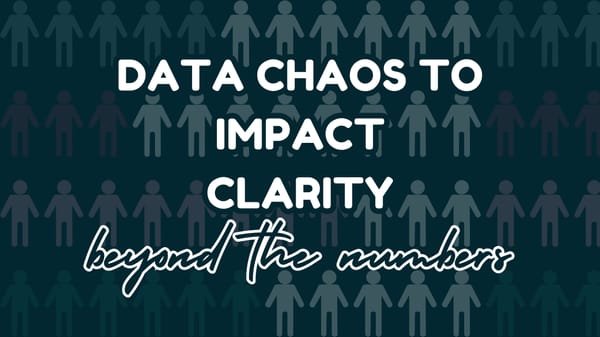
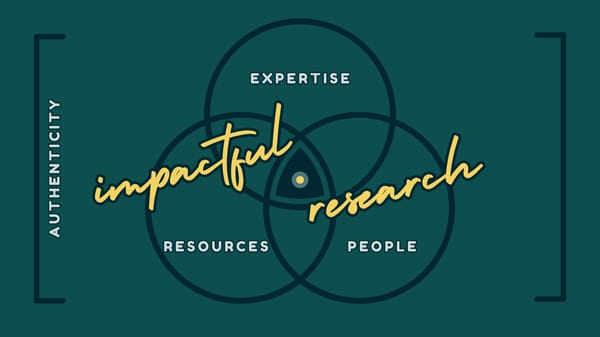



Member discussion